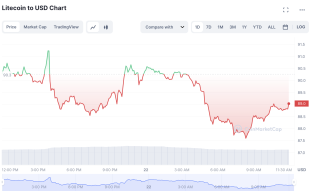Join Our Telegram channel to stay up to date on breaking news coverage
Richard constantly tells his mum lies. He advises her not to worry when she inquires about the savings he is handling for her. The $100,000 “nest egg” she received from the sale of her home is actually stranded at a cryptocurrency lending business. The 37-year-old New Yorker claims, “If I tell her, she’s going to have a heart attack.” This was everything to her.
The television director last year invested his mother’s life savings with Gemini, the cryptocurrency exchange that the Winklevoss twins launched, in order to prevent growing inflation from destroying her investments. The Winklevoss brothers‘ Gemini company offered a product called Earn that gave the impression of being a welcoming place for investors to put their money. At a time when interest rates at conventional banks were almost zero, the program allowed investors to earn more than 7% annually.
Richard is currently one of the 340,000 Gemini Earn clients whose funds have been frozen after the company’s lending partner was caught off guard by the ripple effects that rippled through the cryptocurrency market after Sam Bankman-FTX Fried’s exchange failed in November. Their struggle has brought attention to the complicated patchwork of laws that govern cryptocurrencies in the US.
I assumed I was just putting the money in a high-yield savings account where I could withdraw it whenever I wanted.
Five users who were interviewed by The Financial Times claimed that they mistakenly thought the program was similar to a savings account when it was actually a risky crypto lending scheme. “I assumed I was just putting the money in a high-yield savings account where I could withdraw it whenever I wanted,” Richard said.
Customers’ cryptocurrency coins were lent out through the Earn offering in return for the high interest rates. Beginning in February 2021, Gemini borrowed money from small-scale investors and lent it to the cryptocurrency broker Genesis, which then lent it to other players in the market for digital assets. Investors who were alarmed raced to withdraw their money from Genesis when FTX collapsed.
The broker had to halt withdrawals from its loan business because it was unable to process client withdrawal requests totaling $827 million. Genesis’ lending division filed for bankruptcy on Friday. Richard was one of many who trusted Gemini with their money after being convinced by eye-catching advertisements that were placed all over New York’s billboards and subways and boasted about the company’s regulation.
What’s the best that could happen?
One advertisement stated, “Finally, a regulated place to buy, sell, and store crypto.” Another one asked, “What’s the best that could happen?” The Securities and Exchange Commission, a Wall Street watchdog, has now filed a lawsuit against Gemini and Genesis on the grounds that the Earn program was improperly registered as a securities offering and that regular investors “have incurred severe loss.”
Tyler Winklevoss, co-founder of Gemini, claimed that the New York Department of Financial Services regulated Earn and referred to the SEC’s enforcement action as “counterproductive.” The business “has always worked hard to comply with all relevant legislation,” he continued.
Multiple inquiries to Genesis for comment on the complaint went unanswered. Richard’s concerns are exacerbated by a family member who, according to him, need expensive surgery. “My mother is telling me to use the money, but I keep lying to her and telling her that I’m trying to acquire insurance,” the man claims, adding that the huge sum trapped has been extremely tough. “I’m currently in counseling. I through some really dark times.”
I absolutely trusted that Gemini would do the job for us, manage the risk.
Gemini’s office in midtown Manhattan provided some consumers with comfort in a sector of the cryptocurrency market where many major exchanges lack official headquarters or operate from abroad. “I was aware that they were governed in New York.” Catherine, who lives a few blocks from Gemini’s office and asked that her last name not be used, said, “I absolutely trusted that Gemini would do the job for us, manage the risk.” The single mother invested $600,000 in Earn. Customers’ uncertainty is heightened by the fact that many regulators are in charge of different facets of the cryptocurrency business.
The New York State Department of Financial Services has granted Gemini a license, enabling residents of the state to trade virtual currencies on the exchange. However, the SEC claimed in its lawsuit that Earn should have been registered as a security since it lent cryptocurrency for investment in exchange for an anticipated profit.
Earn allegedly broke securities laws by failing to comply with this, according to the regulator. According to Yuliya Guseva, a law professor and the director of Rutgers University’s fintech and blockchain program in New Jersey,
The very fragmented structure of financial regulation in the US does not serve investors, does not help entrepreneurs to produce products, and creates loopholes.
She continued by saying that the SEC practiced “regulation by enforcement.”
Catherine added that she started taking medicine and sought treatment as a result of her spiraling anxiety as a result of the withheld monies.
I had confidence in them. I never imagined that I could experience this.
The recovery of user cash “remains our primary priority,” Cameron Winklevoss stated after Genesis filed for bankruptcy on Friday. “We will use every option available to us in the bankruptcy court to maximise restitution for Earn users,” he said. A request for comment on clients’ funds locked on its platform was not answered by Genesis.
The appeal of Gemini’s Earn program for many average investors was that it offered a stream of high income that exceeded the profits offered by traditional banks. Gemini’s website allegedly stated that investors might “earn more than 100 times the average national interest rate, among the highest rates on the market,” according to the SEC.
As per the US securities regulator, Gemini collected a commission from the returns Genesis provided to investors in Earn, sometimes as high as 4.29%. On a high-yield savings account, the rate banks were offering was essentially zero at the time, said Gigi, a stay-at-home mother of three, who asked that her last name not be used.
“Seeing the money grow up on a predictable timetable was pleasant,” she said. The Midwesterner transferred $130,000 from the sale of her family home into her Gemini Earn account. “I’m not, like, a wealthy person. Despite hearing stories of individuals losing everything, you don’t believe it could ever happen to you.”
Some consumers now have hope that their money may be restored because to Genesis’ loan division’s bankruptcy. According to a person with knowledge of the situation, creditors including Gemini’s Winklevoss twins are negotiating a bankruptcy agreement that will likely reimburse them with cash and ownership in Genesis’ parent firm, Digital Currency Group.
Others find little solace in the gleam of promise.Catherine remarked,
Even if we ever received all of our money back, the damage is already done psychologically. I have no idea how to end this nightmare.
Related
- Genesis’ crypto lending division declares bankruptcy in the U.S.
- Genesis Expected To File For Bankruptcy This Week – All You Need To Know
- Genesis Investors Are In For a Long Wait For Their Funds
Join Our Telegram channel to stay up to date on breaking news coverage


